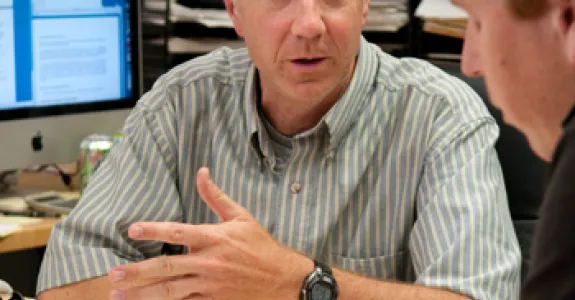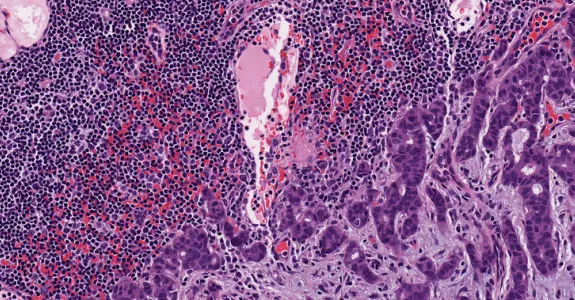
Dr. Eric Kool received his Ph.D. in Chemistry from Columbia University and did postdoctoral work in nucleic acids chemistry at Caltech. He started his career at the University of Rochester before moving to Stanford in 1999, where he is the George and Hilda Daubert Professor of Chemistry. He teaches Organic Chemistry and Chemical Biology to undergraduate and graduate students.
The Kool lab uses the tools of chemistry to study the structures, interactions and biological activities of nucleic acids and the enzymes that process them. Molecular design and synthesis play a major role in this work, followed by analysis of structure and function, both in test tubes and in living systems. These studies are aimed at gaining a better basic understanding of biology, and applying this knowledge to practical applications in biomedicine.
The lab uses the tools of molecular design and chemical synthesis, combined with modern molecular biology and genomics techniques, to study the biology of nucleic acids. They have a general interest in the design of small-molecule probes and reagents for the study of RNA and DNA in the cell, and of enzymes that modify them. For example, they are designing cell-permeable reagents that can be used to map structure and contacts of RNAs in living systems. The Kool Lab is also developing novel tools for labeling and caging RNAs, and methods for profiling transcriptome interactions. They are using these tools to uncover new knowledge about the functions of noncoding RNAs in the cell, and to study the potential of new anticancer targets in the transcriptome.
The lab is also studying DNA repair enzymes, with a focus on development of tools that will help us measure, and potentially treat, cancer and inflammation. They design enzyme mechanism-specific fluorescent probes of DNA base excision repair, and employ them in cellular and animal models of disease. They also use these probes to discover and develop small molecule inhibitors of these enzymes, to be used in translational models of disease. They collaborate with biomedical research groups in translational studies to test their hypotheses regarding the connections of DNA repair to disease.


